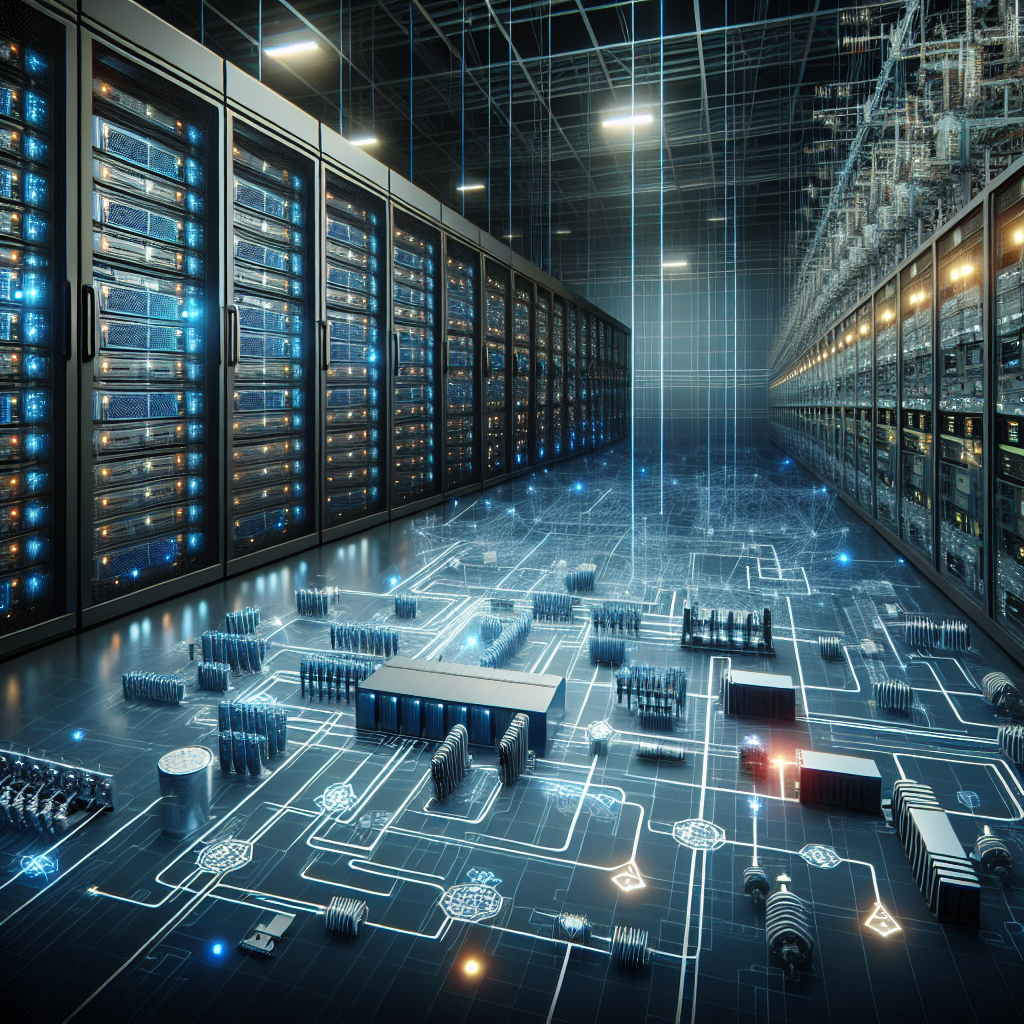Your cart is currently empty!
Tag: Operations

Understanding the Role of Electrical Infrastructure in Data Center Operations
Data centers play a crucial role in today’s digital world, serving as the backbone of the internet and powering the technology that we rely on every day. However, behind the scenes of these massive facilities lies a complex network of electrical infrastructure that is essential for their operation.Understanding the role of electrical infrastructure in data center operations is key to ensuring the reliable and efficient performance of these facilities. From powering servers and cooling systems to ensuring uninterrupted operation during power outages, electrical infrastructure is the lifeblood of data centers.
One of the primary functions of electrical infrastructure in data centers is to provide power to the servers and networking equipment that store and process data. This requires a robust electrical system capable of delivering high levels of power to support the demanding requirements of modern data centers. This includes redundant power supplies, backup generators, and uninterruptible power supply (UPS) systems to ensure continuous operation in the event of a power outage.
In addition to providing power to the equipment, electrical infrastructure also plays a crucial role in maintaining the optimal operating conditions within the data center. This includes powering the cooling systems that regulate the temperature and humidity levels to prevent overheating and ensure the reliability of the equipment. Proper ventilation and air conditioning systems are essential to keeping the servers running smoothly and preventing downtime due to overheating.
Furthermore, the electrical infrastructure in data centers must be designed to accommodate the growing demand for power as data center operations continue to expand. This requires careful planning and design to ensure that the electrical system can support the increasing power requirements of new servers and networking equipment.
Another important aspect of electrical infrastructure in data centers is the implementation of energy-efficient technologies to reduce power consumption and minimize the environmental impact of these facilities. This includes the use of energy-efficient servers, cooling systems, and lighting, as well as the implementation of power management systems to optimize energy usage and reduce operating costs.
In conclusion, the role of electrical infrastructure in data center operations cannot be overstated. From providing power to the equipment and maintaining optimal operating conditions to accommodating the growing demand for power and implementing energy-efficient technologies, electrical infrastructure is essential for the reliable and efficient operation of data centers. By understanding the importance of electrical infrastructure in data centers, organizations can ensure the performance and reliability of their facilities and meet the ever-increasing demands of the digital world.

The Role of IT Operations in Data Center Management
In today’s digital age, data centers play a crucial role in storing, processing, and managing the vast amounts of data generated by businesses and organizations. These data centers are the nerve centers of modern enterprises, ensuring that data is securely stored, accessible, and available when needed. In order to effectively manage a data center, IT operations play a crucial role in ensuring that the infrastructure is running smoothly and efficiently.IT operations involve a range of activities such as monitoring, maintaining, and troubleshooting the hardware, software, and networking systems that make up a data center. This includes tasks such as server provisioning, software updates, security patches, and performance monitoring. IT operations teams are responsible for ensuring that the data center is operating at optimal levels, with minimal downtime and maximum efficiency.
One of the key roles of IT operations in data center management is ensuring the security of the data center. With cyber threats on the rise, data centers are prime targets for hackers looking to steal sensitive information or disrupt operations. IT operations teams must implement robust security measures to protect the data center from external threats, such as firewalls, encryption, and access controls. They also need to regularly monitor and audit the data center to identify and address any potential vulnerabilities.
Another important role of IT operations in data center management is ensuring the reliability and availability of the data center. Downtime can have serious consequences for businesses, resulting in lost revenue, damaged reputation, and decreased productivity. IT operations teams need to proactively monitor the data center for any signs of trouble and quickly respond to any issues that arise. This includes implementing redundancy measures, such as backup power supplies and failover systems, to ensure that the data center can continue to operate even in the event of a hardware failure.
In addition to security and reliability, IT operations also play a key role in optimizing the performance of the data center. By monitoring key performance metrics such as server utilization, network latency, and storage capacity, IT operations teams can identify areas where improvements can be made to enhance the efficiency of the data center. This may involve upgrading hardware, optimizing configurations, or implementing new technologies to improve performance.
Overall, IT operations are essential for the effective management of data centers. By ensuring the security, reliability, and performance of the data center, IT operations teams help to ensure that businesses can effectively store, process, and manage their data. With the increasing importance of data in today’s digital economy, the role of IT operations in data center management will only continue to grow in significance.

The Importance of Data Center Servers in Modern Business Operations
In today’s digital age, data has become one of the most valuable assets for businesses. From customer information to financial records, companies rely on data to make informed decisions and drive growth. As a result, the importance of data center servers in modern business operations cannot be overstated.Data center servers play a critical role in storing, processing, and managing vast amounts of data for organizations. These servers act as the backbone of a company’s IT infrastructure, enabling seamless communication and collaboration among employees, customers, and partners. Without efficient data center servers, businesses would struggle to access and utilize their data effectively, hindering productivity and innovation.
One of the key benefits of data center servers is their ability to ensure data security and integrity. Data centers are equipped with advanced security measures, such as firewalls, encryption, and access controls, to protect sensitive information from unauthorized access or cyber threats. By storing data on secure servers, businesses can minimize the risk of data breaches and safeguard their reputation and bottom line.
Moreover, data center servers offer scalability and flexibility to accommodate the evolving needs of businesses. As companies grow and expand, they can easily scale up their server capacity to handle increasing data volumes and traffic. This scalability allows businesses to adapt to changing market conditions and stay competitive in a fast-paced business environment.
Another significant advantage of data center servers is their reliability and high performance. Data centers are designed to deliver uninterrupted power supply, cooling, and network connectivity to ensure optimal server performance. This reliability is crucial for businesses that rely on real-time data processing and analytics to make critical business decisions.
Furthermore, data center servers enable businesses to leverage cloud computing and virtualization technologies to streamline operations and reduce costs. By hosting their data on cloud servers, companies can access their data from anywhere, at any time, and on any device. This flexibility allows employees to work remotely, collaborate effectively, and enhance productivity.
In conclusion, data center servers are essential for modern business operations. They provide the foundation for storing, processing, and managing data efficiently, securely, and reliably. By investing in advanced data center servers, businesses can unlock new opportunities for growth, innovation, and competitive advantage in today’s digital economy.
